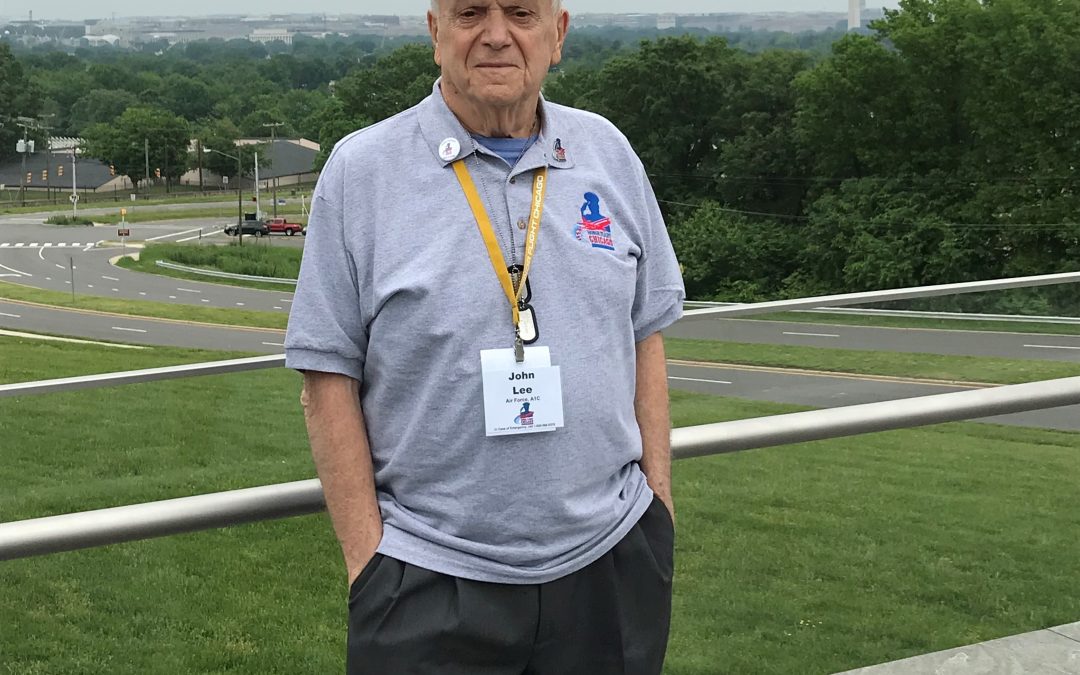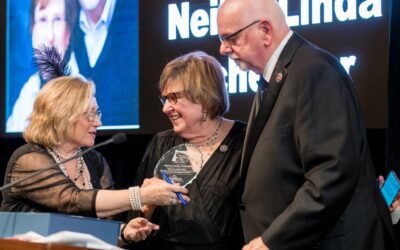A podcast interview with former teacher John Lee, opens with this question: “Did you consider yourself a spy?”
Without missing a beat, Lee responds: “Technically, probably. But no, I didn’t.”
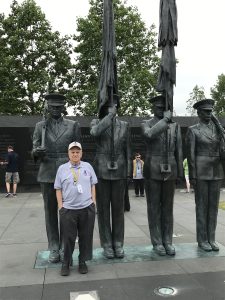
Air Force veteran John Lee, in front of the Air Force Honor Guard Memorial in Washington
John Lee spent more than 30 years as a teacher and administrator — with the bulk of those years at Our Lady of the Wayside in Arlington Heights and later St. Anne School in Barrington — and yet he never mentioned his highly classified role as a Russian interpreter during the Cold War.
“No one ever asked and I wasn’t going to bring it up,” Lee says with a laugh. “And besides, I was not a hero.”
True to his humble self, Lee describes the veterans who fought on the front lines in World War II as the real heroes, as well as those who fought in the jungles of Viet Nam and in the deserts of Afghanistan. Yet his role as a Russian interpreter, stationed in Southwest Germany listening to Russian fighter pilots in East Germany, is drawing a growing audience.
Lee was invited to share his story in a podcast with Paul Meincke, the veteran news broadcaster who spent 30 years at ABC 7, and now serves on the board of Honor Flight Chicago. It was back in 2019, that Lee accepted an invitation to board one of the Honor Flights to Washington DC, for a series of tributes and visits to famous memorials, all meant to honor, thank and inspire.
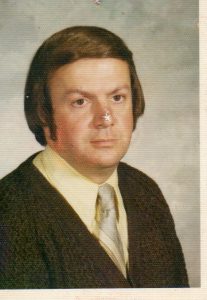
John Lee at Our Lady of the Wayside School, where he started in 1967
In the podcast, Lee described enlisting in the Air Force in 1955, after his first year of college. He chose Air Force and its four-year service requirement, as a chance to see the world. Little did he know that most of that world would be confined to a secret telecommunication van, lined with banks of radios, near Kassel, Germany.
It was during basic training, that a battery of tests revealed a hidden skill: Lee had an aptitude for foreign languages. Consequently, he was sent to Syracuse University for a year of intensive courses in Russian, taught by Russian ex-pats. And while he didn’t believe he was fluent, he was capable enough to understand military terms. In the fall of 1956, Lee took his new language skills — and a top-secret clearance — to the border of East Germany to listen to Soviet pilots flying overhead.
“You were searching for frequencies, twirling a dial until you found one, and when you did you locked in on that,” Lee describes. “Actually, much of it was humdrum, boring. We were looking for something exciting and it wasn’t there.”
Lee ultimately was discharged at the end of 1958. He then returned to college and after spending a short stint with A.C. Nielsen Company, accepted his first teaching job at Our Lady of Hope School in Rosemont. After four years, he left for the much larger school at Our Lady of the Wayside, where he would start its algebra program, drive the school bus and serve as Assistant Principal.
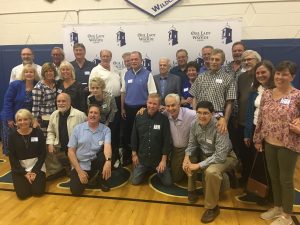
John Lee, back row, center, with Wayside graduates from the class of 1970 who honored them at a reunion.
He also would meet his wife at Wayside, Rita Sweeney. She was a widow with five children and grandchildren, and Lee suddenly found himself part of a big family. Yet, even they did not know of his military background and skills as a Russian interpreter, until recently.
All of which begs the question: Why did he abandon his top secret intelligence work with the Air Force to spend his working life at Catholic schools in the Northwest suburbs?
“Teaching turned out to be the right career for me at the right time,” Lee says. “I wanted to bring some moral values into what I was teaching and have the freedom to teach how I wanted.”

